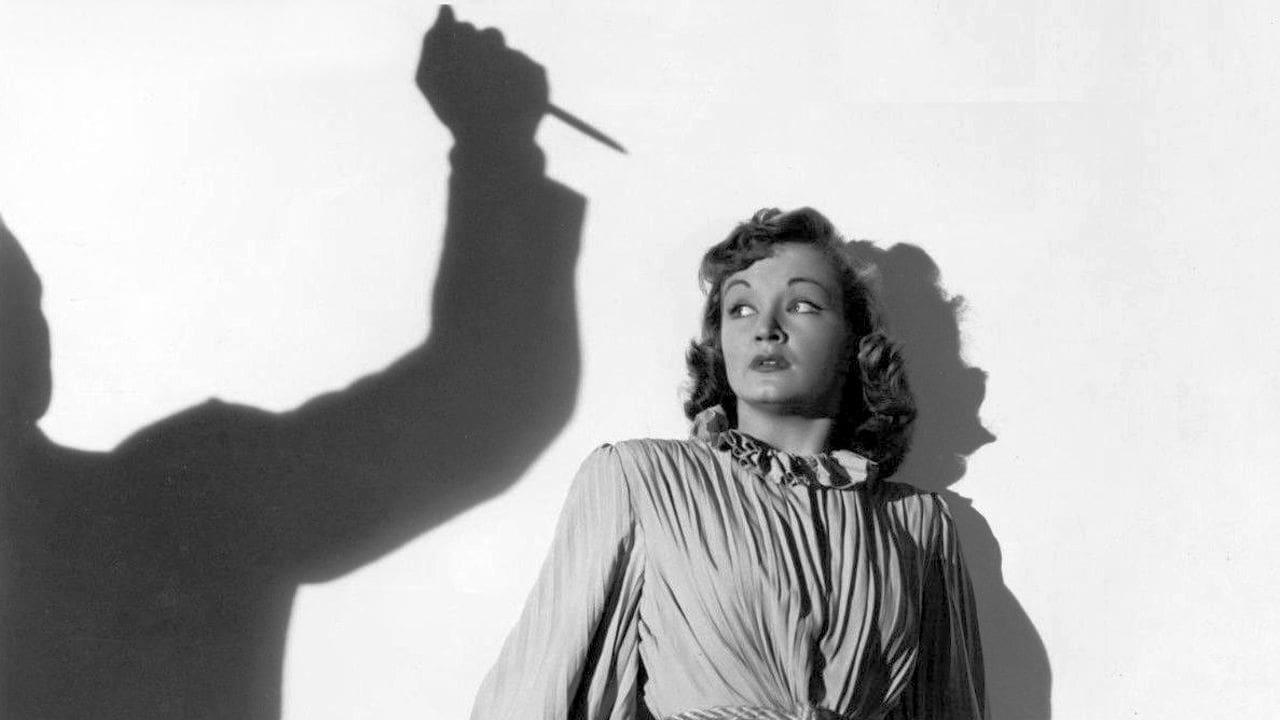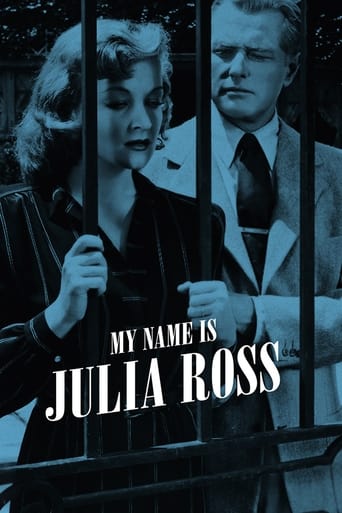

Too much of everything
... View MoreYes, absolutely, there is fun to be had, as well as many, many things to go boom, all amid an atmospheric urban jungle.
... View MoreThis is one of the best movies I’ve seen in a very long time. You have to go and see this on the big screen.
... View MoreThrough painfully honest and emotional moments, the movie becomes irresistibly relatable
... View Morea nice film. almost naive and not very credible but seductive for the plot who reminds Hitchcock, for cast - Dame May Whitby could not be a surprise - and for the flavor of a lost period. a film noir like a lot of others, it is special for the lovely construction of tension - small bits , little details who prepares the spectator for the heart of story. Nina Foch seems be the ideal Julia Ross and the secret is the clever use of a lot of clichés of time. and sure, a not insignificant detail is the music, the house near the sea, the tools who gives inspired taste to a film noir. the best thing - balance between pieces. not great but nice. and, in that case, it is a real good point.
... View More"My Name is Julia Ross" is a very, very rare sort of picture. It was created with a very modest budget and cast in order to be the second, or 'B' picture at a double-feature. However, when the film was screened, people liked the film so much that at many showings, it was the premier picture! This is rather unheard of and says a lot about the story from Muriel Bolton and Anthony Gilbert--as well as the direction by Joseph H. Lewis.The film begins with Julia (Nina Foch) looking for work. She's frustrated in her search and is excited when she sees that a new employment agency has opened. They interview her for a job and during the course of the interview, they have some strange questions--does she have any family, does she have a boyfriend and the like. Well, she can answer no to most of the questions but lies about the boyfriend part--telling them she has no one in her life. They are thrilled and offer her a job. Here's the bizarre twist. She suddenly finds herself drugged! And, she wakes up two days later in a prison-like mansion!! And, these strangers begin referring to her by another woman's name! She insists that she IS Julia Ross and demands to be set free but they treat her like she is insane. Her 'mother-in-law' (Dame May Witty) and 'husband' (George Macready) obviously have something awful in mind--but what? And, with all the neighbors having been told that she is a schizophrenic, she cannot convince any of them that she is telling the truth! What's next? See the film for yourself.Th bottom line is that everything works well in this film--the acting, writing, direction, sets. The only negative, and it's a minor one, but back in the 1940s, Hollywood had the Production Code and according to this code, evil had to be punished so viewers know that somehow things WILL work out for good. A similar film that works even better is the 1960s French film "Diaboliquement Vôtre". Likewise a man has been kidnapped and folks work very hard to convince him he's someone else. But because there is no code to restrict the film, the ending is VERY dark and more satisfying. Still, both are exceptional films and I recommend both very highly.
... View MoreAt sixty-five minutes this may well have provided a satisfactory 'B' picture element to a typical double bill risible though it seems today.There's a stunning opening shot of (what will turn out to be the heroine) walking away from camera in the pouring rain and had they been able to sustain that feel this may well have been one to reckon with. Alas, it loses credibility almost at once - certainly when viewed in 2010 - as Lewis crams in exposition and progression in double time so we learn that Julia Ross (Nine Foch) is broke, owes three weeks rent, has just lost a boyfriend to marriage (then, within thirty seconds learns that he couldn't go through with the wedding), sees an ad from a new employment agency in the newspapers, applies, is interviewed and hired for a live-in secretary post on the strength of the fact that she is single, no boyfriend, no parents, no friends or, to put it another way, no one is going to miss her when the new employers turn her lights out. It moves so quickly that at the time the audience wouldn't have had time to reflect on how ludicrous it was but the three leads, Foch, Dame May Witty and George MacReady are all up to snuff and seen today it makes a nice curio.
... View MoreJoseph H. Lewis was one of the finest directors of film noir. This is surely his best.It doesn't have some of the standard features of what we now call film noir. Though American-made, it is set entirely in England. It lacks gangsters. It lacks a femme fatale. It does not lack crime.The title character answers an ad. She is overjoyed that she'll be making some money as a secretary. Instead, she wakes up days later as the pawn in a frightening plot. Only a very strong person could survive such a terrifyingly unsettling ordeal. And Nina Foch gives the sense of a strong woman as Julia.Part of the excitement comes from casting against type: Ms. Foch has an elegant manner. She is no screaming, cowering victim. She is actually a bit icy and patrician, albeit impecunious. This makes her character's plight all the more believable.Surely the single most fascinating element is the casting of Dame May Witty. She was (and is) probably most famous for the charming title character in "The Lady Vanishes." She has a sweet manner and a harmless, slightly dithering manner. But here she is far from a heroine.George Macready is excellent as her extremely troubled son. The whole cast, in fact, is superb.It seems that this famous and brilliant movie was made almost by accident. Undoubtedly the director knew exactly what he was doing. But he did it on a low budget. That is the thrill and charm of film noir, the real film noir: It is small, convincingly lowlife, and, in this case, unforgettable.
... View More